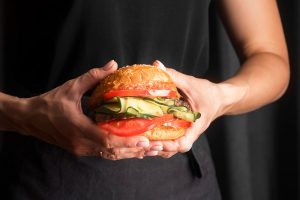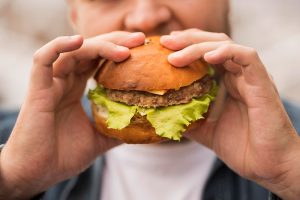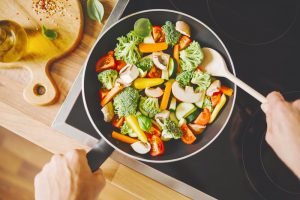If you’re getting ready to pack on some serious muscle and bulk up, then you need to make sure you’re fueling those grueling gym sessions with food that makes a difference.
Not sure where to start with the best foods for bulking? No worries, read on for our top tips and the best foods for bulking. By the end of this blog, you’ll have some new foods to add to your grocery list.
What to eat when bulking?

When building muscle mass and bulking up, you want to have roughly a 250-500kcal daily surplus. How do you do this? By eating lots of high-calorie foods full of the right nutrients to help you bulk up.
Before we jump in, it’s essential to know that different macros contain different amounts of calories – proteins and carbs have 4kcals per gram, while fats have 9kcals per gram.
How much fat do you need for bulking?
There’s a lot of fear around fats, but a diet rich in healthy fats is an excellent way to ensure that you’re hitting your daily calorie goals. Plus, research has shown that healthy fats, like omega-3s, can help you to increase your muscle protein synthesis, which is the process of building muscle.
Fats are also crucial for storing fat-soluble vitamins such as A, D, E, and K. Ideally, you want about 30-35% of your daily calories coming from healthy fats.
How much protein do you need for bulking?

We all know protein is essential in our diets, but it’s critical for building muscle mass. Ideally, you’d be getting around 1.6g/kg/d and 0.4g/kg per meal.
Protein also has the highest impact on feeling full, so if you struggle to get your calories in, aim to keep it at around 1.6g/kg/d. Protein should be approximately 20-25% of your total daily calories.
How many carbs can you have while bulking?
Carbs are vital for fuelling those tough training sessions and helping you recover. Not all carbs were created equal though, complex carbs typically have more fiber, as well as a lower GI.
Complex carbs generally are considered a healthier option, but when you’re looking to bulk up, simple, high GI carbs might be better for bulking up.
Also Read: Do growth hormones really boost your gains?
You want to be consuming around 40-55% of your daily calories from carbs. If you struggle to eat enough food and build up a calorie surplus, easily digested high-GI carbs is a great way to get there. Plus, higher-GI carbs help replenish glycogen stores at a faster rate than complex carbs, enabling you to recover quicker and train at a higher intensity every session.
When you’re bulking up, it’s so easy to fill up on the wrong foods, so below are our top twelve best foods for bulking.
Dairy
When you’re cutting, it’s best to avoid dairy. But when you’re bulking up, whole milk is a great way to stock up on protein and calcium as well as adding extra fat and calories to your diet. One glass has around 150 calories.
Plus, whole milk and cottage cheese provide a great source of protein to help build muscle, while the fat and high GI carbs restore your muscle glycogen stores, maximizing your muscle-building potential.
To get more dairy into your diet, have whole milk with your post-workout protein shake, or have a pot of cottage cheese before bed.
Nuts and nut butters
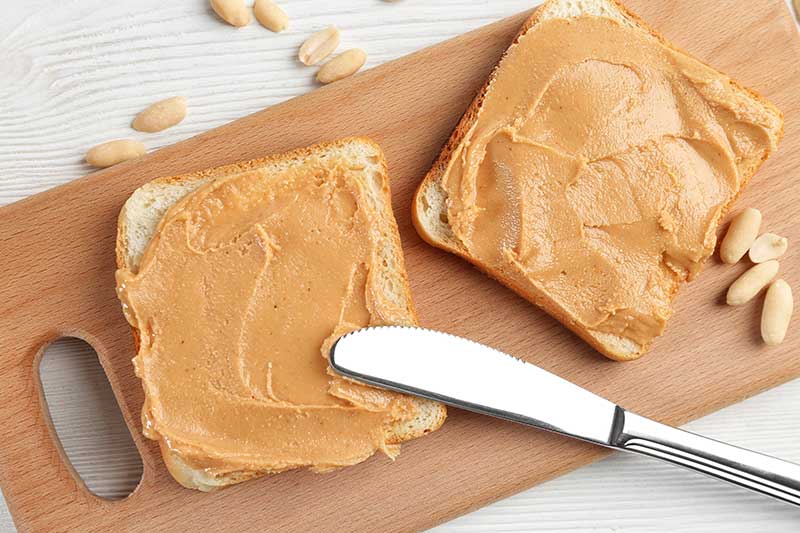
We know, you already know how great nuts are and how they’re energy-dense, full of nutrients and packed with healthy monounsaturated fats. It’s for all these reasons that nuts and nut butters are perfect for bulking.
Nuts and nut butters are packed full of essential nutrients such as magnesium, phosphorus, selenium and zinc, which are necessary for maintaining a healthy nutritional status and building muscle mass.
Also Read: What’s in a bodybuilder’s fridge?
Just a small serving of nuts can add many calories, protein and fat, with up to 300 calories per 50g of nuts.
Popular safe and legal steroid alternatives
Salmon
And whilst we’re on the theme of healthy fats, salmon and other oily fish should be in your bulking diet. During training, try to consume 2-3 servings of oily fish per week.
Avocado
And the healthy fats keep on giving. Avocados have monounsaturated fatty acids such as oleic acid, perfect for adding healthy calories and fat to your diet. Plus, your avocado habit also means you’ll be adding a large number of antioxidants and vitamins into your diet.
Whole eggs
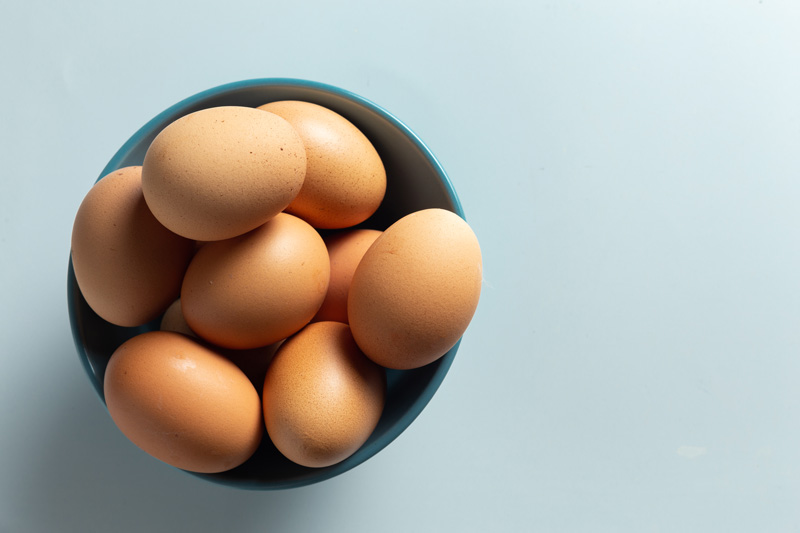
Egg yolks get a bad rap. If you’ve been throwing them away, stop. Whole eggs are excellent sources of fat and protein for bulking, with each egg having around 75-90 calories.
While many think that eggs are unhealthy due to their saturated fat content and high cholesterol, but they’re actually high in healthy cholesterol.
Lean beef
When choosing a protein, many restrict their intake of red meat. However, lean red meat is excellent for bulking for many reasons. Not only is it a great source of fat and protein, but it’s also high in heme iron which is essential when building muscle and working out hard.
Coconut and olive oil
Coconut and olive oils are great additions to adding calories and healthy fats to your diet without leaving you too full.
Sweet potato
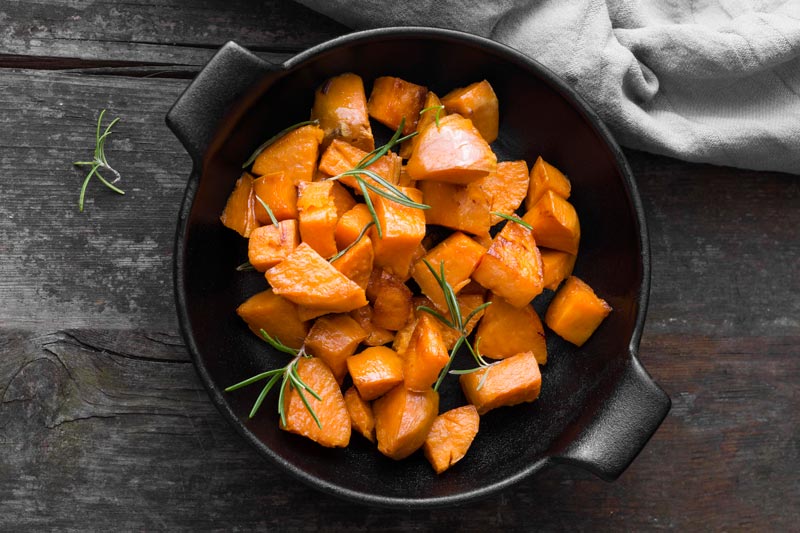
Remember, 40-55% of your diet should be carbs, and sweet potatoes are packed full of carbs. The average sweet potato has around 40g of carbs and lots of vitamins and minerals. Plus, if you’re doing a clean bulk with no refined sugar, sweet potatoes are great for satisfying any sweet cravings.
Oats
Oats are another great source of complex carbs that can give you a significant boost during the bulking season! They’re also a fantastic source of fiber and complex carbs that aid digestion and provide a stable release of energy, making them a great pre-workout meal.
Pasta
White pasta is a high GI carb, and a 100g (dried weight) portion contains roughly 350kcal and 70g of carbs, making this a great post-workout meal, where you can recover quickly and fuel you for your next session. Plus, generous portions of pasta will help you boost your daily calorie surplus and bulk up.
Rice
Similar to pasta, white rice is also a high GI carb, plus its lower fiber content will mean you can probably eat more without feeling too full. Adding rice to salads and other main meals is a great way to boost your calories and carbs, plus it’ll help you to keep fuelling your training sessions.
Dark chocolate
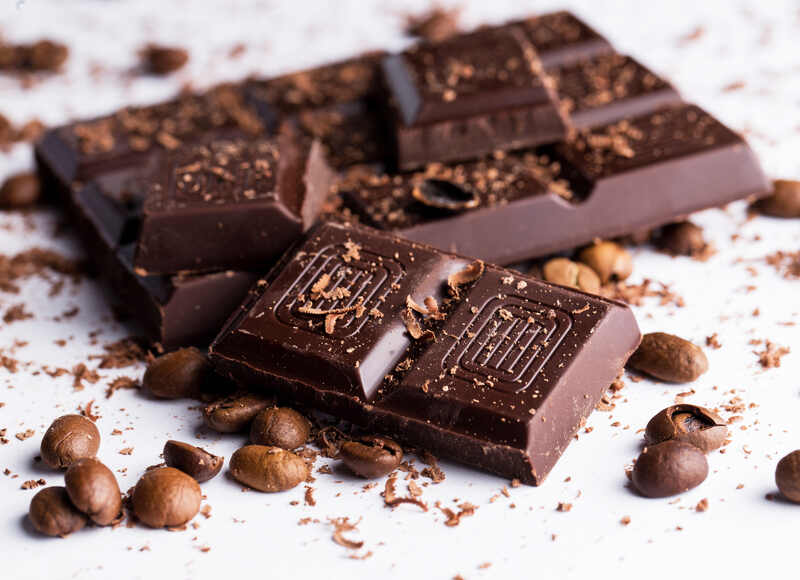
If you’ve got a sweet tooth, then dark chocolate is a great way to satisfy your sugar cravings. Plus, chocolate with over 75% cocoa content is packed with antioxidants and monounsaturated fats.
So, there you have it, our top twelve best foods for bulking. If you’ve not already got at least a few of these in your fridge, then you could be missing out on some serious muscle-mass gains.
Remember, hitting your macro and micro-nutrient goals is the way forward and how to reap the benefits of those intense sessions in the gym.
Ready to BULK UP?

Bulking season? Your diet is essential as a bodybuilder, but often, we want a little support when it comes to making serious gains, increasing T levels, and enhancing performance in the gym.
All of which can be achieved with Brutal Force. Our 100% natural bulking supplements and SARMs are entirely legal, safe, and free of any side effects. With no prescription in sight!
It’s time to get BRUTAL – the right way.







